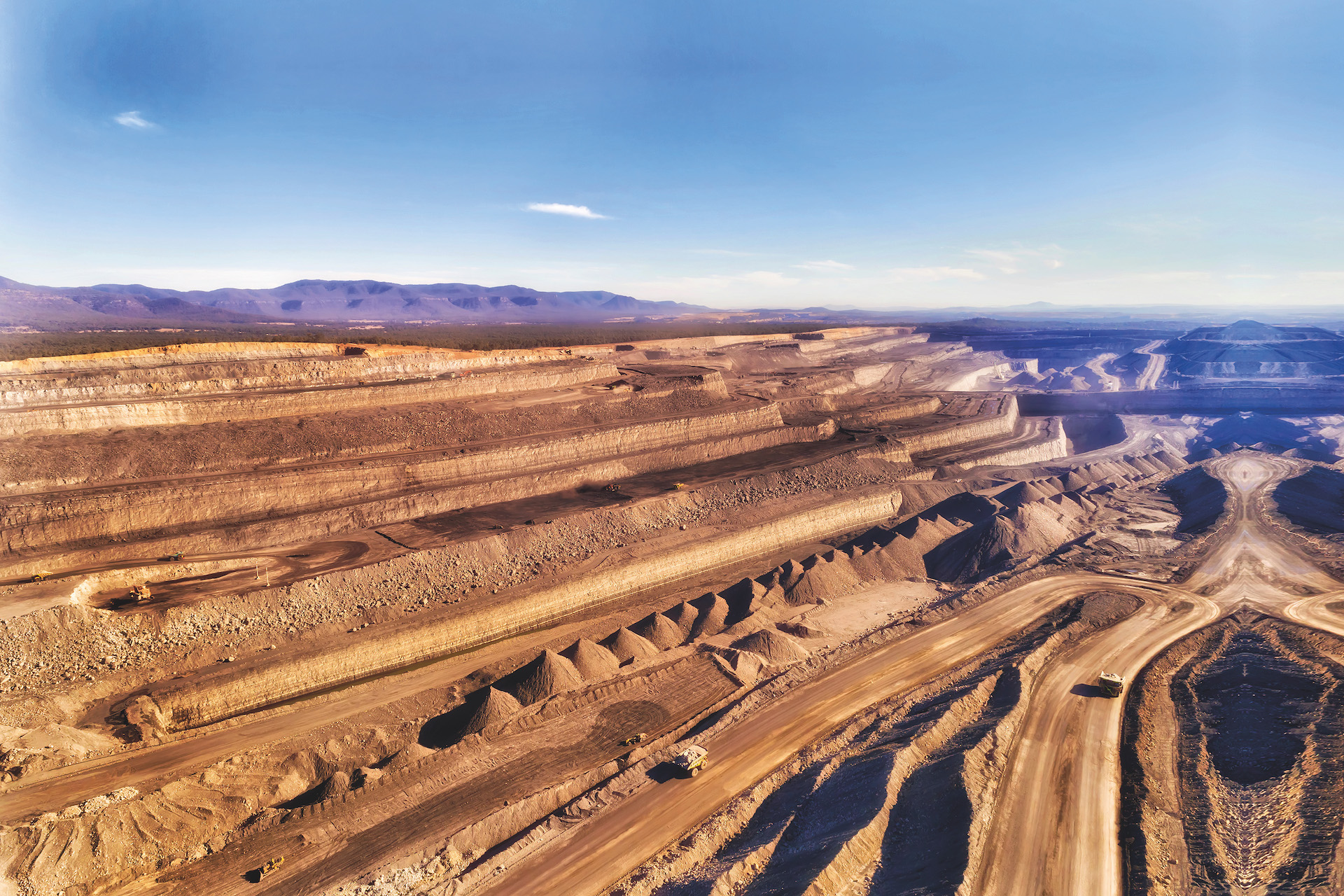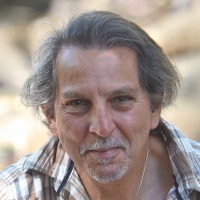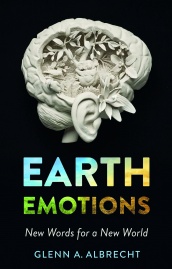Entering the Symbiocene

Glenn Albrecht has coined a number of neologisms, including the now-famous "Solastalgia", which refers to the growing sense of psychological distress over the destruction of our environment. Today, the Australian philosopher proposes an alternative to the prevailing catastrophism and the end of the world rhetoric. He calls for a revolution of emotions, thanks in particular to a work on language, to enter what he calls "the Symbiocene". Explanations.
INTERVIEW
Glenn Albrecht: When I retired, I decided I would like to be close to wild nature in Australia; I live in rural New South Wales, not far from Newcastle. I wanted to be as self-sufficient as possible and to personally practice the very things that I used to teach my students under the umbrella of sustainability. I am also trying to replicate some elements of a life that I understood my grandparents to be living in Southwest Australia. They had the most amazing self- sufficient lifestyle; they grew all their own food; they generated their own power and collected their own water. So, my title 'farmosopher' was the idea of combining my career as an environmental thinker, writer and academic with the effort of trying to be more self-sufficient. That meant also using my hands. The idea of combining gardening work with the Earth and working with my mind may sound utopian, but I think I have achieved a measure of it.
I feel uncomfortable when I am too detached from nature. I have researched very distressed people and desolated areas as part of the work that I do as a social scientist and philosopher, but to work and live privately within that kind of desolation would be too much for my mental health. My farm is a retreat; it is an escape. It is almost an antidote to my concept of Solastalgia.
"I am trying my desperate best to get us out of the Solastalgia age, into something which gives point and purpose to our lives."
Precisely, you coined the concept of Solastalgia, a term that is now widely used to describe the lived experience of desolation and powerlessness in the face of the destruction of a loved place.This feeling is unfortunately growing. You say we have fully entered the age of Solastalgia.
Truly yes. I wrote an article with that title in 2012 and a decade later the situation is substantially worse. The climate has deteriorated significantly in ten years, and we still have not addressed the real cause of this problem which is carbon emissions. Today, the state of the world is hugely problematic and risky. The tension is extremely high. Climate change aside, we have seen the development of the world under a model of capitalism which has become gigantic in its proportions. We no longer are looking at small or regional destruction of biomes or ecosystems, we are looking at a planetary scale destruction. That is encapsulated in the term 'ecocide'. We are already suffering from the damage we have done to the Earth. If it goes any further, we will go out of the age of Solastalgia, into something else which is almost indescribable and for people like me, unthinkable. The ecoapocalyptic people are fixated on looking at what is going wrong. On the contrary, I am trying my desperate best to get us out of the Solastalgia age, into something which in my mind is far more interesting, more beautiful which gives point and purpose to our lives and our children’s lives. I want the age of Solastalgia to end and would like that concept to become redundant as soon as possible.
Since you live in Australia, have you observed that the forest fires which devastated the country have triggered a particular wave of Solastalgia among the population?
Yes, we had an episode of catastrophic fire from 2019 until the end of summer in 2020 which burnt a colossal part of Australia. Creatures, great and small, were killed in their trillions. It is such a powerful wave of change to see that happening to your own country that Solastalgia becomes almost inadequate to describe the distress that people are feeling about what is occurring before their very eyes. It goes beyond Solastalgia, to what I call tierratrauma (Earth trauma). The reason for that is because I have defined Solastalgia as a chronic condition that happens with drought and mining, this lived experience of changes that hits you every day, every night, 365 days a year, for decades. Here, the fires are deeply traumatic, they kill and burn fast. Unfortunately, that trauma is still radiating through the lives of people two years later. Some are still living in caravans and have a severely distressed lifestyle. The fires illustrated the power of the change that is now upon us. But let’s be honest; most Australians seem to be not moved by even that scale of trauma. It is two years down the track, and we pretend to move on. We can be distracted by anything else under the sun except the issues that really need to be dealt with.
Beside Solastalgia, your latest book defines numerous new terms such as ecoparalysis, soliphilia or ghedeist... Why was it important to reinvent a complete lexicon to describe these Earth emotions?
One of the reasons is that, as a professor of sustainability, I was acutely aware that concepts which we were using like sustainability or resilience were becoming part of the language of the very system that we were trying to change to something better. Resilience in particular became a way of describing what I would consider to be industries' way of doing business that is technically non sustainable but was being presented by PR companies or advertising as praiseworthy. The existing language was being appropriated and misused by the very forces that needed to be changed. That was the problem.Secondly, our language evolves with us. We now have a new world full of challenges that require a language powerful enough to deal with that context. My work as a creative thinker has been to say: the world we live in is not adequately described by the languages that we have. The philosopher Wittgenstein once argued that the limit of one’s language is the limit of one's world. Well, if we expand our language, that gives a greater understanding of what is going on around us.
I am doing two things with that language: I disrupt the language we are comfortable with, and I insert new concepts that encourage people to rethink the position that they held before. Language is a powerful means for creating inaction or action, as it generates emotions. The word 'emotion' actually comes from that very linguistic base; to be moved. The emotions are that which move you.
My hope is to enable genuine change to take place, to generate a vision of the future that is so compelling that people will want to get to it, that they will want to do something to achieve it, rather than to just sit back and criticize everything that happened in the past.
You call for the transition to a new era: the Symbiocene. How is this era characterised?
Humans have now created a globalized gigantic system of consumption and production which impacts the world. It changes the climate, it has led to the sixth great extinction event, and it is leading to the seventh, which is us. The Anthropocene is the era in which humans have come to dominate the planet in every respect; its climate, its geology, its oceans, everything... When I realized that this period of human dominance was so powerful and so capable of wiping out everything that I valued in life, I started to think: what is the opposite? Why can’t we begin to think of a period in the near future where we reintegrate with life, where symbiosis with other life forms is the norm; rather than extraction, rather than exploitation, rather than a parasitic relationship? It is not that hard for us to imagine a state in which we could reconnect to the rest of life because it is that same interconnected life from which we emerged as a species.
However, we cannot do this by going back to the cave or atavism. We have to present a new meme where this reintegration becomes an expression of what we are as humans, as Homo sapiens. We are supposed to be wise, intelligent, creative apes. So far, we have shown just how dumb we really are. But we are capable of a lot better.
Open-cast coal mine in the Hunter Valley, Australia. Glenn Albrecht has spent much of his career studying the effects of environmental devastation in this region on local people. The term "Solastalgia" was born out of this.
Wouldn't this sound utopian to many?
This idea of reintegration of the human psyche, body, culture, technology with the rest of life seems like an impossible, utopian view, but I would counterargue that the utopian view is actually the one we are in now, the Anthropocene. We cannot continue it into the future, it will self-destruct. The Symbiocene offers a glimpse of the future, which is based on science. It is not utopian, nor idealistic, it is based on something which can deliver an antidote to all the negative psychoterratic emotions that we can experience. It gives the possibility of the diminution or the elimination of the ecoanxiety, ecoparalysis, solastalgia or tierratrauma. How do we get back our positive connections to the Earth? Where are our strong emotional bonds to our home, the Earth? The creation of the Symbiocene provides answers to these questions.
In your opinion, it is therefore essential to transform negative emotions such as Solastalgia into positive emotions. You call for a revolution of emotions, a revolution that is both conceptual and emotional...
The war of emotions is something we have to go through now. It is cathartic.
The human species needs to see that there is an alternative path that is far better than death, disease, and collapse. Most of us want the opposite, not only for ourselves but also for future generations. The first step is to create a vision of the future that includes, for instance, getting power (energy) from bacteria or having buildings made out of fungi that repair themselves. The crucial point is you need to begin to imagine what the Symbiocene is like and to live in that state, as opposed to trying to continue to survive in an Anthropocene that becomes increasingly nasty, ugly, and violent.
I have a very clear image of what the future should be like. I know how and where I want to live in twenty years’ time and it is also where I would like my children and grandchildren to be. I want to share that with everyone who is prepared to listen. Many commentators are good at depicting an apocalyptic vision of the future, but actually, the most important thing to be doing is to paint a vision of a positive, science-based achievable future that is going to be far better for all of us and the rest of life on this planet.
"Why can’t we begin to think of a period in the near future where we reintegrate with life, where symbiosis with other life forms is the norm?"
Do you feel rather optimistic today about our ability to implement the means to move into the Symbiocene era?
Yes, I do.
First, as I mentioned previously, we need to get the emotional and intellectual arguments going. We are not an isolated single species; we are not existing in an environment that we control. There is an important critique that has to be made about our sense of human superiority and privilege.
A clear priority is to stop catastrophic climate change. Between now and 2030, we have to convert from fossil fuel-based energy to renewable energy, so that at the very least we do not produce even more carbon emissions. Not to forget that we are also going to be mining and extracting, for example, lithium, and other rare earth metals, thus still having a parasitic relationship to nature. These extractive technologies are not the future but much needed transition technologies before we can get to the Symbiocene.
Therefore, it is vital to shift the focus of university and private research to solve the problem of how we reconnect our technological and intellectual lives with the symbiotic world, in a benign relationship. We also need to use our intelligence to create the conditions whereby we voluntarily begin to control our population. In summary, we must put our time, resources, energy, and intellect into actions and technologies that reconnect us to nature. For example, materials that are in harmony with the rest of life, that are biodegradable, or that we can even eat when we are finished with them. These are the sorts of ideas that are with us now. They are not science fiction. But we are not putting enough energy and investment into them.
As I said, it is the emotions that move people, not scientific facts. But if you can get science and emotions together, you get powerful motivation for change. And that is exactly what I am doing.

Glenn Albrecht - Philosopher and author
Glenn Albrecht is an Australian philosopher who specialises in environmental issues. He is an innovator in the field of research into 'psychoterratic' mental health problems, i.e. those related to the Earth. A former professor at Murdoch University and honorary member of the School of Geosciences at the University of Sydney, he is the author of numerous articles and books.


